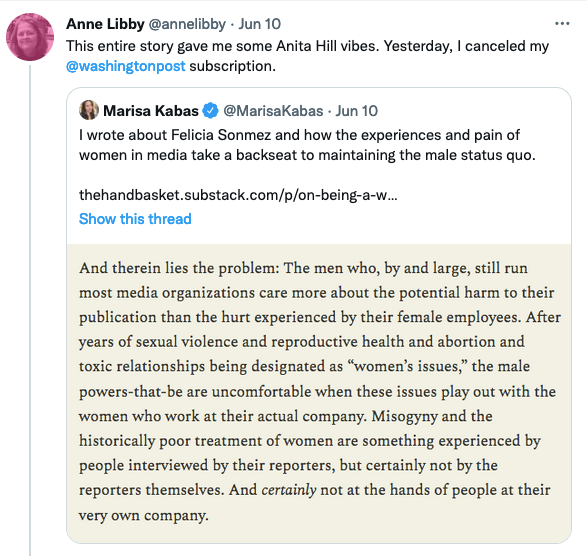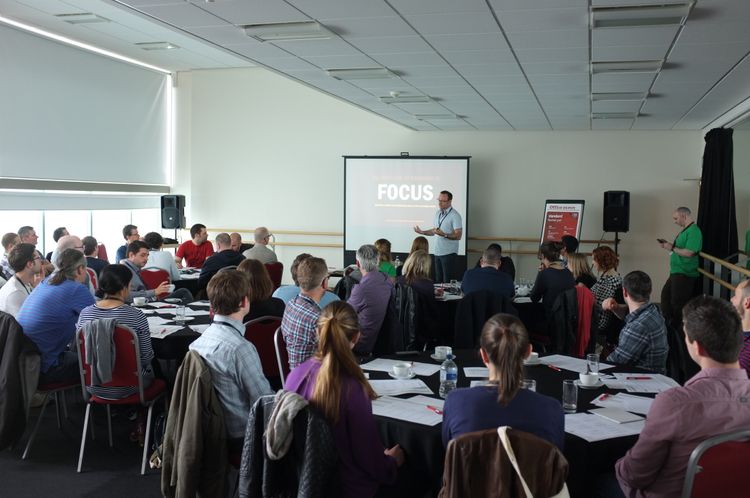Warm Take: Managing Out

Even when someone is fired very publicly, many factors obscure many truths. Some things have happened in secret. Some things are never spoken, and exist only in the minds of people who influence events. Some information is kept private, for good and bad reasons -- or because of confusion, or incompetence.
If you're not superonline, or in media, you might have missed a story about...well, a series of questionable management decisions at The Washington Post that stretch back a few years, many of which involve reporter Felicia Sonmez, who was fired by The Post on June 10.
I never presume I can infer the entire true story of someone's ouster — especially when the story is about people I don’t know, in workplaces I don’t know.
So, while I will opine about what I read about Felicia Sonmez being fired, I cannot make a case about what actually happened.

I can, however, make a case about what happens in organizations when trust, communication – and sometimes process -- are broken. People “manage out;” they seek out support outside of the organization.
Many whistleblower stories start when someone, maybe naively, wants to to make positive change, and goes outside the organization for visibility and support. Managing out can also be a cynical acknowledgment of where the leverage really lies -- like every political leak that comes to mind. Sometimes, managing out comes from an impulse to burn the whole thing down.
When people manage out, it's always because management has failed to act in ways that demonstrate that people's concerns have been heard.
- When Felicia Sonmez took to Twitter to criticize a co-worker’s awful retweet, could she have trusted The Post to listen to her internal report?
- When one of Sonmez’s co-workers tweeted, “calling for compassion in our workplace,” did he trust The Post’s management to take action to create a compassionate workplace?
- When various Post journalists defended their workplace on Twitter and elsewhere, what did they think about The Post’s ability to manage its own reputation — and by extension, their own reputations with readers, sources, and future employers?
What an unfortunate mess.
A few things I've written on and around managing out
- "Get Out!" in Ready for your Intervention? On Management #38 (2019)
- Everything Has Changed. Members Only #4 (newly unpaywalled, 2018)
- What You Disregard, You Accept: Red Flags for CEOs (2017)
Links
- On Being a Woman in Media, by Marisa Kabas. Context and commentary – brief and heartbreaking.
- Anatomy of a controversy: Inside the drama at The Washington Post, by Tom Jones at Poynter. A concise statement of the public events leading up to Felicia Sonmez being fired, along with commentary.
- Complaint! by Sara Ahmed, about how (academic) institutions are designed to resist the voices of people who experience harassment, racism and/or bullying. And why it's important to complain, even in the face what seems intractable.
I wish for an audio version of Complaint! because (imo) Dr. Ahmed's work is meant to be heard. You can hear and see Dr. Ahmed talking about the work that became Complaint! here, and elsewhere on the internet.
I'm gearing up for my Summer Reading issue – what are you reading? I'd love to hear your recommendations. Or if you have questions, or suggestions for topics you'd like to hear from me on, please send me a note!
Thanks for reading this Warm Take, which I try to finish while I'm drinking my Sunday morning coffee. It turned out to take a bit longer today. There may be typos, and particularly inelegant turns of phrase, and despite my best efforts I won't see them until later...and then, I'll fix them on The Internet.
May you and your loved ones be safe, healthy and free,
ICYMI


